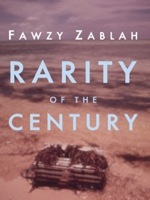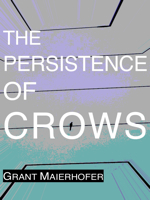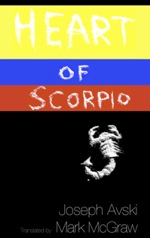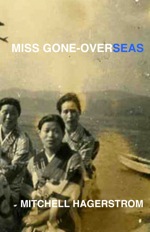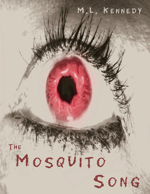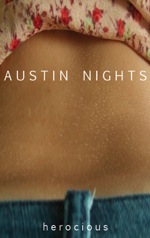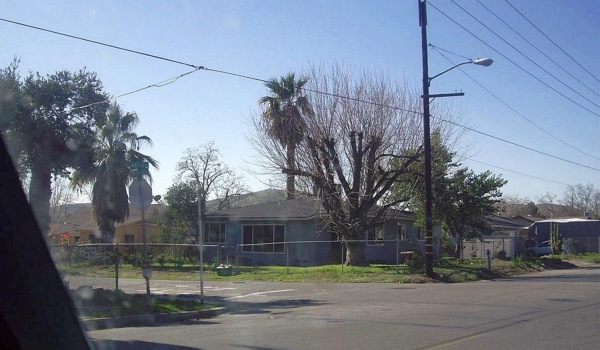
48th and F, San Bernardino (Photograph by Paul Campbell)
On March 19th, 1960, my father suddenly died. My mother and I found him at four o’clock in the morning, slumped in his red recliner, his face flushed cobalt blue, and gasping for breath. He’d carefully dressed himself in his best bathrobe and slippers, combed his hair, and slipped his prized bloodstone ring on to his left pinkie finger, as though Death had given him advance notice of his impending arrival. The pastor of our Catholic church and our family doctor both arrived, but to no avail. On this chilly morning, coyotes wailed somewhere near the foothills north of our house. I was eleven years old.
On the previous evening, we had returned from a meeting during which my father had become the leader of a Boy Scout troop, and I was dazzled by his willingness to volunteer for the position. He was, after all, in his mid-fifties, much older than the men who usually volunteered for the position. By the time we’d gotten home after the induction ceremony, I was positively thrilled, and bursting with pride. My mother had sliced cheese and salami, and we’d sat around the kitchen table, nibbling and chatting. Now, we were waiting for the mortician to haul his corpse away.
I remember kneeling next to his casket at the mortuary, and my mother forcing my left hand against his chalky blue face, wanting, I suppose, to make sure I understood the reality of his death. Through a partially closed door across the room, I could see the mortician sitting at a table, sawing through a piece of steak and popping the chunks into his mouth. The room stunk of gardenias. To this day I cannot tolerate their cloying presence.
Relatives began arriving from Rhode Island, our home state, mostly men, who stood in the driveway hawking, spitting, and sipping from whiskey flasks. One of my uncles commandeered my father’s pink and white DeSoto and drove me around the city, asking questions about the place, obviously thinking I needed to be distracted, while lecturing me on the importance of being the man of the house, a concept so absurd that even at my age I could easily view it for what it was, a well-intended line of nonsense.
A gaggle of Irish nuns from the convent up the street arrived, clucking about the implications of my father passing on Saint Joseph The Carpenter’s day, struggling to find some sort of meaning where it didn’t exist. He was dead, and that was the end of it. Our house was only a block from the church, so various parishioners came to offer their condolences, and the kids from my 6th grade class shook hands with me after they’d been prompted by their parents. Everyone wanted to look after me. I wanted them all to leave.
My mother’s friends began cooking. Chickens, turkeys, hams, lasagna and ravioli crowded the kitchen countertops, and another group began to scrub the house thoroughly, as though death was a communicable disease. Someone hauled away my father’s recliner, and it re-appeared the next day, newly recovered. They threw out all of my father’s clothes and most of his personal effects; shoes, straight razors, clothes, Sunday suits, cigarettes lighters, eye cups, bandages, bedroom slippers and an ancient shotgun that he was always going to let me fire someday. Within a few days, it seemed as though he’d never lived with us.
Someone from the church donated a gold chalice in my father’s name. I can remember my mother remarking more than once that she’d have been glad to sell it because she could have used the money. In its parsimonious manner, the church had never paid into his Social Security account, and had left him no other benefits. For her, his death was a disaster.
In 1952, my father had followed a friend out to California, looking for work. He was drawn by the dry air and the sunshine, relief for his arthritis and his work-damaged kneecaps. My mother wanted to escape the rigid control of her sprawling Italian family, and after a lifetime of snow and frustration, she was ready for a new adventure. And she nursed a hysterical belief that my biological father would someday try to repossess me. So in the spring of 1955, we headed west.
San Bernardino was lovely then, a palm-studded valley bisected by wide boulevards that disappeared into the base of the surrounding foothills. The air was crisp, and the winters mild. Deodars and Aleppo pines dotted the middle distance, and Moorish-style apartment houses agreed with loony, Modernist car washes and pale pastel shacks. The neighbors were friendly, and the churches were filled with smiling, prosperous families. San Bernardino looked just like the postcards my father had mailed home to us from Rhode Island.
My father took whatever employment he could find in the booming desert expanse, framing track houses and beginning construction of a new Catholic Church in our neighborhood that hugged the lower elevations of the mountain range towering above us. I can remember him digging holes around the bases of enormous Eucalyptus trees, and burying dynamite sticks under them in order to blow the stumps out of the ground.
He felt that a lot of the work he was doing was well below his dignity, and in fact, he had been one of the most skilled carpenters in Rhode island, but in 1955, in Southern California, no one cared much about aesthetics and permanence, so lathe and plaster boxes had replaced the substantial houses he’d been accustomed to constructing. And having once plunged from the deck of a half-built fishing vessel in his early years and shattered his knee caps, he had only managed to keep working by reinforcing himself every morning with numerous hernia belts and truss rods.
My father was in many ways a 19th century man, born in 1905, near the dissolution of the Ottoman Empire, when Istanbul was still Constantinople, and T. E. Lawrence was seventeen years old. In fact, images of him display a man who, with his wavy blonde hair and blue eyes, could easily have been taken as an Arab or a Berber.
He made friends easily with men like himself, capable and assured of their skills. As a child, one of the qualities I admired most about him was the way he interacted with his peers, leading, instructing and issuing praise among them, even as he worked with them side-by-side. They had come from Ohio, New York, and Pennsylvania, from all over the country, with strong hearts and gold-flecked teeth, hauling hammers and saws in the backs of decomposing Ford coups converted into make-shift pickup trucks. They had all traded comfortable lives for a future that had yet to reveal itself. So they framed houses in San Bernardino, Victorville, Barstow, and Daggett, hammering and nailing against the farthest, ghostly edges of the Mojave, constructing flimsy barracks at the 20-mule team pit in Boron, sleeping in primitive motels and nourishing themselves with beans and boiled hot dogs.
At night, they sat in bars, nursing their drinks, flexing worn knuckles, and sliding shuffleboard pucks along waxed wooden alleys. The stomach-churning memories of gruff-voiced Italians and lilting Irish cousins, and the scent of garlicky kitchens and Labor Day parades surely haunted their nights. They must have stared into the deepest yawning holes of the black desert night while the biggest coyotes barked and yowled, and seen the shimmering mirages of their dreams vanishing into infinity.
My father gradually grew dark and befouled with some inexplicable rage, forcing his alcohol intake skyward, and he became staggering drunk nearly every night, probably the result of alcoholism, disgust for the low-quality work he was forced to accept, and the hollowness he was left to fill when close friends and family seemed to be light years away. And although he’d taken immense pride in overseeing and completing construction of the church, convent and rectory, none of the pleasure he should have gained from his efforts seemed to satisfy him.
Just before the nearest honky-tonk closed late at night, my mother would awaken me, load me into the car, and drive to wherever she suspected he was drinking. If she found him, she’d send me into the bar fetch him. Removing him was a delicate operation, because although he could drink himself nearly comatose, he was liable to start swinging if he was startled. He’d glance down at me, swear loudly, and head for the door, ignoring my mother. There was hell to pay when we got home. Cursing and shouting at each other, the battle could rage until dawn, followed by a few days of my mother’s most frigid silence. My father’s friends indulged him in his drunkenness then, winking at him, sharing the secret of his angry wife. He looked smaller to me then, diminished, rooster-proud and unyielding.
My father kept working, building shacks at the borax mine and nailing together tract houses, a cheesy, slipshod existence that deeply insulted his Yankee pride of craft. When his worn-out knees finally gave out, so did he. Far from his friends and his family, he slipped into a wobbly world of barrooms, lodge meetings, and whiskey-saturated nights at the local wrestling arena where tattooed bruisers flung each other into the ropes and beat their chests in mock fury. Finally, he turned into a drunken ghost, his heart broken by the space, the wind and the emptiness. We buried him in a raw hole at Mountain View Cemetery, on a clear spring afternoon. The Knights Of Columbus surrounded his casket, a tipsy half-circle of his drinking buddies decked out with plumed hats and cheap chrome swords.
The bishop came from San Diego to conduct my father’s funeral, a solemn high mass, designating him as an important figure in our parish. I was more-or-less forced to serve as an altar boy, even though I had always felt that Catholic ceremonies tended to possess a hollow creepiness that always left me frigid. And in fact, the service seemed to be more about the bishop, and not my father. But then, the bishop was a politician, and my father was not. Once my father had faded from view, I ceased serving as an altar boy, and took no further part in athletic programs.
“You’re the man of the house now,” said various, well-meaning men, a concept that failed to capture my imagination. And mostly, I struggled to reconstitute my memories of him. But his sudden death took place precisely at the point at which I began to physically mature, and now I was left to invent my own future.
With my father dead and buried, there were no more shouting matches to endure, and because my mother was busy trying to keep us fed, I could come and go as I pleased. I hid out in the garage and glued together model cars. I plugged in my record player and listened to Dell Shannon sing “Runaway,” over and over, and let its sadness wash over me. I remembered how my father had taken me out once to a ball field and popped up flies for me to catch, and I slid my hand over the plastic model of a twenty-mule team borax wagon he brought back for me when he built living quarters when he worked in Boron. I tried to feel something, but there was nothing there, just a hollow space where my father should have been.
One morning I opened his tool boxes and picked through his screwdrivers, awls, chisels, and hammers, hefting them, running my hands over their handles, unfurling cloth tape measures and sifting nails through my fingers. I examined the shotgun I’d never fire and recalled a long-lost photo of him, grinning broadly, seated in the front seat of a Model T Ford with a dead moose strapped across the front fenders. I tried to imagine firing it, but I could not. I closed the garage door, walked up to the grade school and shot baskets until the sun sank below the horizon.



